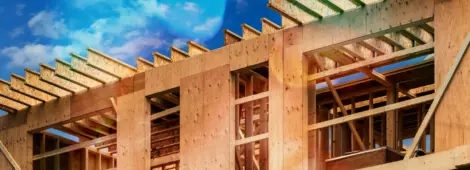
Is the Building Code in the Public Domain?
Almost every occupied structure or building that is constructed in the United States must comply with one or more building safety codes. The codes that are applicable to the project depend on the type of building, how it will be used, and where it is located. Generally, the applicable codes are based on “model” codes that are developed by private organizations such as the International Code Council (ICC) and the National Fire Protection Association. These codes are adopted, and frequently amended, by a state or local municipality.
Sorting through different codes and keeping track of updates is a complex task, and any oversight can have significant consequences on a project. As buildings are becoming more complex and building safety codes are evolving to keep pace, new online databases of building codes, such as UpCodes have been gaining a lot of attention.
In 2017, the ICC sued UpCodes for copyright infringement, and these organizations have been involved in a federal lawsuit ever since.
How Does Upcodes Work?
What is UpCodes? UpCodes is a searchable platform for building codes with the goal of making building regulations easier to navigate. The free version of the software simply allows users to access the various state and local codes from a single platform. A paid upgrade to the software provides project-centric features to facilitate project team collaboration, such as bookmarking of applicable code sections.
Does Automation Have Any Limitations?
While Upcodes has the potential to speed up the process of identifying exactly which codes apply, including any local amendments, it does not have the ability to read or interpret the code. Building and safety codes are not cookbooks, and they cannot contemplate every possible building arrangement or design element. So, interpretation is frequently necessary to determine whether a building design complies with the locally enforced code. It can be challenging to incorporate this type of insight into a platform so that the end user understands the reasoning behind each code requirement. Knowing how to apply applicable codes will help to avoid the need to confront local authorities or the need for redesign to meet AHJ requirements.
Building codes can also be intentionally vague—providing multiple options--to allow for performance-based solutions that meet the code’s intent. As building codes continually evolve to reflect the latest quality standards, it will be critical for platforms to keep up to date with the latest, most accurate editions to ensure public safety. Any failure to properly maintain the most current codes—most critically local code amendments and interpretations—could lead to propagation of errors across multiple projects.
The Future
If the courts judge in favor of UpCodes, we could see a slowdown in the development of building codes, updates, and other standards because many standards development organizations rely on the sale of their copyrighted works to fund their nonprofits. Alternatively, state and local taxpayers could fund the processes, but that is unlikely to be a realistic option.
The engineering staff at Jensen Hughes fully understands the requirements of the code(s) and, in most cases, are party to the code-writing body that creates and amends them giving us greater insight to the reason for the changes. Additionally, we are fully versed in the performance-based alternatives to building and fire code requirements and can help you create the most efficient strategy from planning to occupancy.












